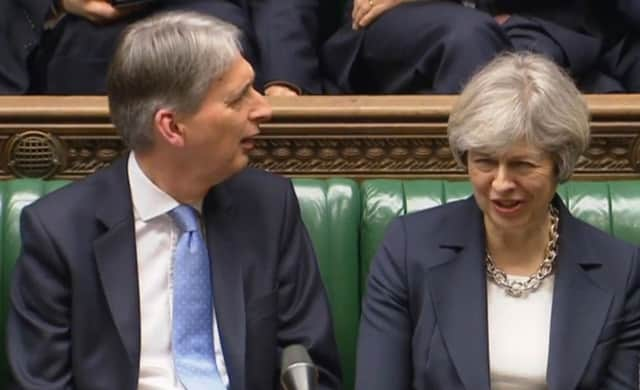Leader comment: Farce over Budget blunder was no laughing matter


International development minister Rory Stewart was interrupted live on TV to be told of his superiors’ change of heart just as he was speaking in support of the controversial measure, while party colleague Sir Desmond Swayne bemoaned the fact a newspaper article defending the policy was about to publish.
And when Philip Hammond was asked who had first realised that the measure was in breach of the Conservative manifesto, the Chancellor replied: “I think it was Laura Kuenssberg on the BBC.”
Advertisement
Hide AdAdvertisement
Hide AdNot to be outdone, Labour leader Jeremy Corbyn made the lamest of contributions –“It seems to me like a government in a bit of chaos” – when presented with a golden opportunity to lacerate the government. Denis Healey’s famous remark about being “savaged by a dead sheep” came to mind.
Of course, the entire episode has been no laughing matter for those who were at the sharp end of the proposed measure. More than a million self-employed people faced paying increased contributions, which was described as a penalty for self-starters and entrepreneurs, who were being asked to fund the raising of £2 billion to pay for spending commitments on social care and business rate support. Why target the self-employed, instead of the businesses who use their services and as a result do not have to pay National Insurance contributions?
Whether the measure was unfair or not is a matter of debate, although it was clear from the backlash that it was deeply unpopular. For a start, the government should have waited for the Taylor Report on employment before attempting significant change.
Even more fundamentally, the Chancellor should not have broken a manifesto commitment, which further erodes the trust between public and politicians. If a manifesto pledge cannot be taken at its word, then what information can voters rely on when they make their choice at the ballot box?
But regardless of the rights or wrongs of the policy, there are two serious consequences still to consider. The first is where the £2bn will be raised, if it is not coming from taxing the self-employed. Last week’s Budget was built around this measure, and yesterday’s U-turn undermines just about every other aspect of the Chancellors’ balancing act.
The second question is the competence of the Chancellor. Mr Hammond played safe in last year’s autumn statement when he was new in the job, at a time when uncertainty over Brexit made any bold moves inadvisable. The spring Budget is the first real test of his tenure, and he has failed spectacularly. Saying that he would fix the problem in the autumn is the stuff of amateur hour. The Prime Minister should have a succession plan ready for No.11 Downing Street –it may be required before much longer.